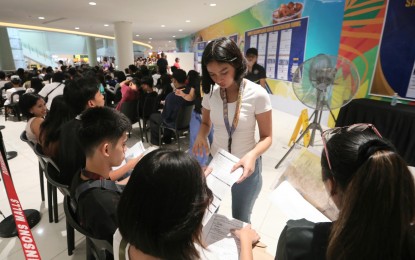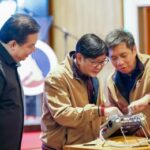MANILA – The Commission on Elections (Comelec) is considering reinstating the online registration system (e-registration) once voter sign-ups resume.
The Comelec Chairperson stated that the project had been implemented previously.
“We already had online registration before, so we will enhance the e-register. It is highly likely that we will reintroduce the e-register in the future,” he said in an interview on Monday.
Under this system, applicants can submit their applications online but will still need to visit local Comelec offices to take their oaths and provide biometric data.
“Applicants can submit their forms online and will then be scheduled to visit Comelec offices for the oath-taking, as well as to have their photos, fingerprints, and signatures recorded,” he explained. “Submission is online, but biometrics must be collected in person.”
The Chairperson added that reintroducing e-registration aims to provide the public with more registration options and streamline the process.
Robinsons Place Ermita
Robinsons Place Ermita is a large shopping mall located in Manila, Philippines, opened in 1985 as part of the Robinsons Malls chain. Situated in the historic Ermita district, it has become a key retail and entertainment hub, blending modern amenities with the area’s rich cultural heritage. Over the years, it has undergone expansions and renovations to accommodate more shops, dining options, and leisure facilities.
Commission on Elections
The **Commission on Elections (COMELEC)** is the independent constitutional body responsible for overseeing elections in the Philippines. Established in 1940, it ensures free, fair, and credible elections, enforces electoral laws, and administers voter registration. Over the years, COMELEC has played a crucial role in the country’s democratic processes, including pivotal post-Marcos elections.
Barangay and Sangguniang Kabataan Elections
The **Barangay and Sangguniang Kabataan (SK) Elections** are local polls in the Philippines held to elect leaders for the smallest government units (barangays) and youth councils (SK). The barangay system dates back to pre-colonial times, while the SK was established in 1991 to empower youth in governance. These elections, typically held every three years, promote grassroots democracy and community participation.






